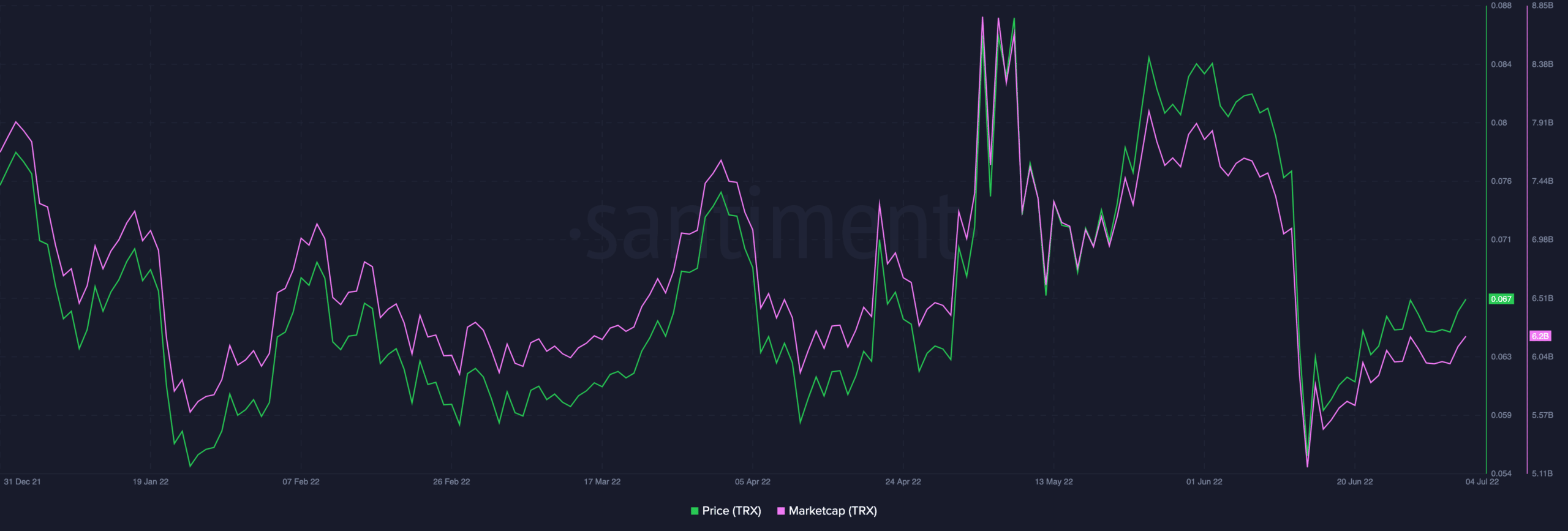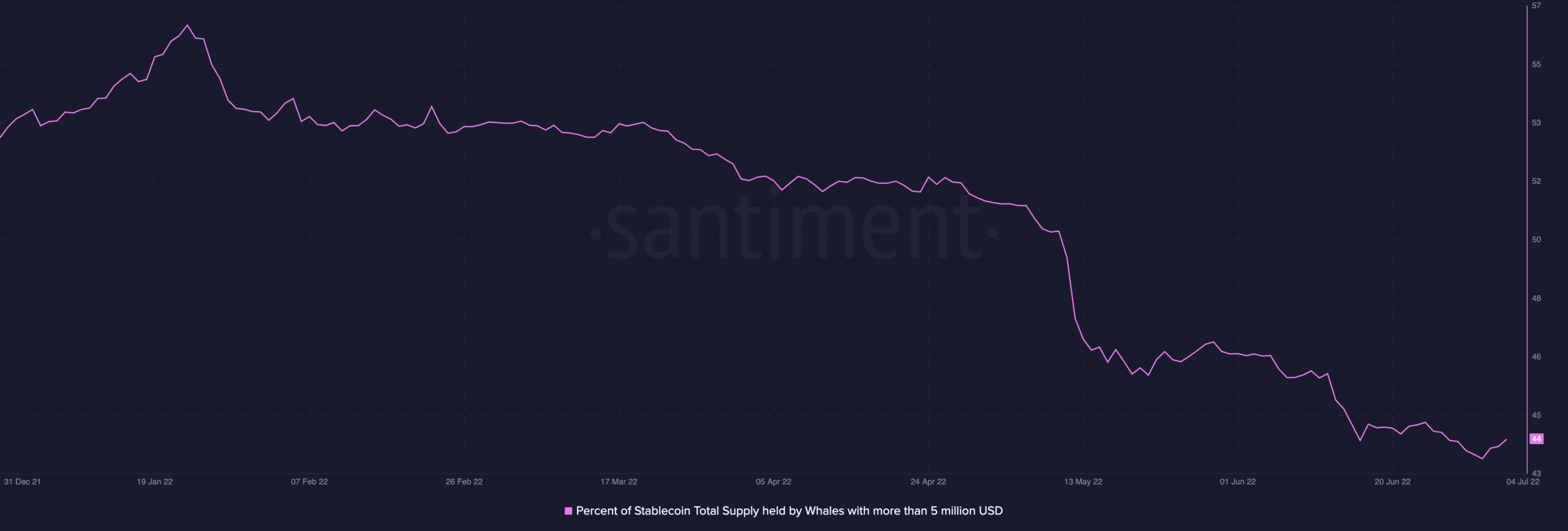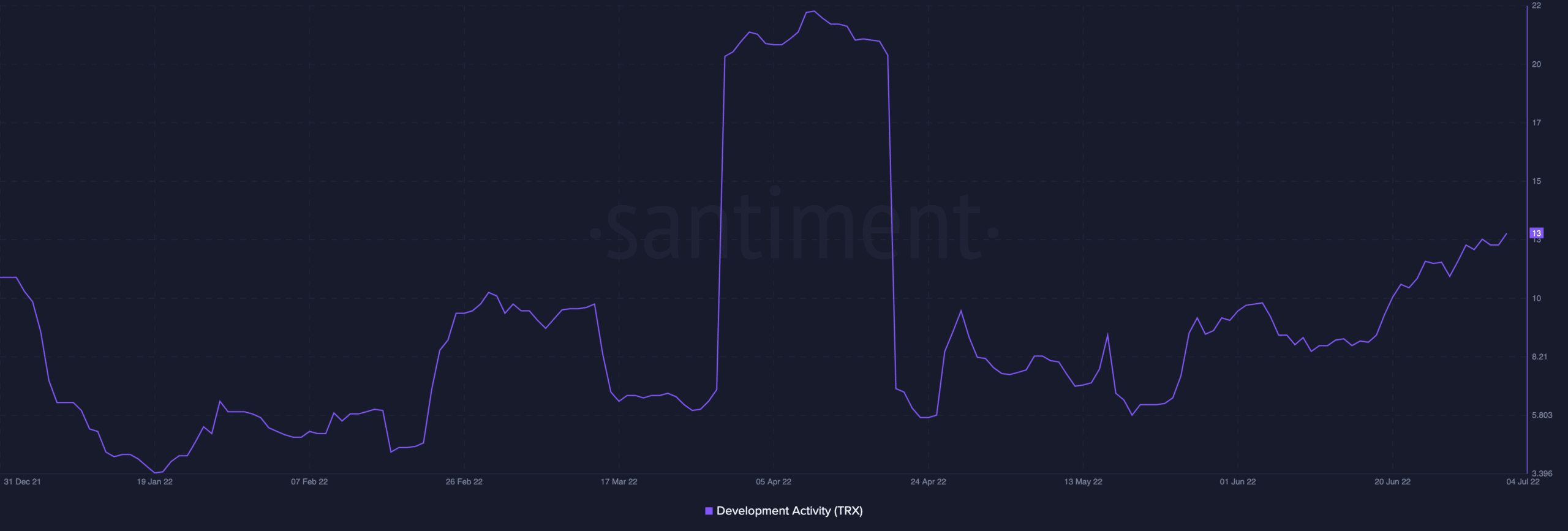With Tron [TRX] steady, investors should know that…

The TRON Blockchain [TRX] has made tremendous progress since its launch. Housing over 100,000,000 accounts, the network has witnessed a transaction count of 3,481,985,024. According to data from blockchain analytics platform, Coin98, the TRON Blockchain ranked second on the list of top 10 blockchains. The blockchain had a total locked volume (TVL) of 3,917,8181, 257 with the highest TVL in the first half of 2022 besides the Ethereum chain.
Currently ranked at #13 on CoinMarketCap’s list of crypto assets with the largest market capitalization, TRX, the network’s native coin stood at a market capitalization of $6.35 billion. In light of the growth of the TRON Network in the last six months, how did its native, TRX fare?
Steady growth in price
TRON started the trading year with an index price of $0.075. Already on a downward trend, the cryptocurrency market bloodbath of April made it worse as the price per token touched a low of $0.05. Within the first few weeks in May, the bulls initiated a price rally that saw the coin mark a spot at $0.08. A bearish correction soon followed this. Finally, the bulls were able to take over and the token closed May at a high of $0.081. After touching a high of $0.088 on 1 June, the price per TRON coin took on a steady decline, and the coin ended the first half of the year with a price of $0.068. Over the six-month period, the coin registered a 9% drop in its price. Furthermore, in the first half of the year, the coin’s market capitalization witnessed a decline from $7.77 billion to $5.85 billion.
On-chain data in the last six months
As per data from Santiment, the total supply of TRX coins held by whales over the six-month period saw a gradual decline. Standing at 44 at the end of June, a 21% drop was logged during the period.
On the developmental front, TRX was able to register a 40% uptick within the period under review.
Furthermore, on a social front, the token hit several lows and highs during the year’s first half. The coin logged a 32% decline in its social dominance within that period. Similarly, its social volume saw a 46% decline in the year’s first half.









